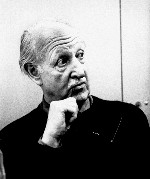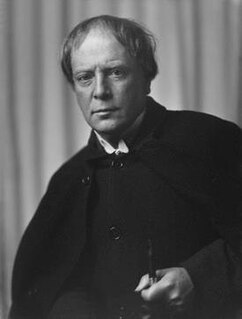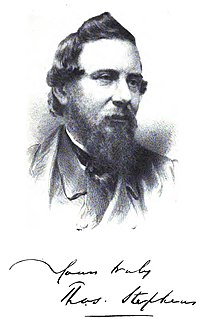 W
WMorgan Glyndwr Jones, generally known as Glyn Jones, was a Welsh novelist, poet and literary historian, and an important figure in Anglo-Welsh literature. He served as both Chairman and President of the Welsh Academy's English-language section. His study The Dragon Has Two Tongues (1968) discusses ways in which the interwar period affected his generation of Welsh authors.
 W
WSaunders Lewis was a Welsh political activist, poet, dramatist, historian and literary critic. He was a prominent Welsh nationalist and one of the founders of Plaid Genedlaethol Cymru, later known as Plaid Cymru. Lewis is usually acknowledged as one of the most prominent figures of 20th century Welsh-language literature. In 1970, Lewis was nominated for a Nobel Prize in Literature. Lewis was voted the tenth greatest Welsh hero in the '100 Welsh Heroes' poll, released on St. David's Day 2004.
 W
WArthur Machen was the pen-name of Arthur Llewellyn Jones, a Welsh author and mystic of the 1890s and early 20th century. He is best known for his influential supernatural, fantasy, and horror fiction. His novella The Great God Pan has garnered a reputation as a classic of horror, with Stephen King describing it as "Maybe the best [horror story] in the English language." He is also well known for "The Bowmen", a short story that was widely read as fact, creating the legend of the Angels of Mons.
 W
WThomas Stephens was a Welsh historian, literary critic, and social reformer. His works include The Literature of the Kymry (1849,1876), Madoc: An Essay on the Discovery of America by Madoc ap Owen Gwynedd in the Twelfth Century (1858,1893), and Orgraff yr Iaith Gymraeg (1859), as well as a number of prize-winning essays presented at eisteddfodau between 1840 and 1858. He was the first Welsh historian and literary critic to employ rigorous scientific methods, and is considered to have done more to raise the standards of the National Eisteddfod than any other Welshman of his time. Stephens also figured prominently in efforts to implement social, educational and sanitary reforms both locally in Merthyr Tydfil and more broadly throughout Wales.
 W
WSir Ifor Williams, was a Welsh scholar who laid the foundations for the academic study of Old Welsh, particularly early Welsh poetry.
 W
WRaymond Henry Williams was a Welsh Marxist theorist, academic, novelist and critic influential within the New Left and in wider culture. His writings on politics, culture, the media and literature made a marked contribution to the Marxist critique of culture and the arts. Some 750,000 copies of his books were sold in UK editions alone and there are many translations available. His work laid foundations for the field of cultural studies and cultural materialism.
 W
WWilliam Williams was a Welsh Congregational minister, poet and literary critic born at Bryn y Ffynnon, Denbigh. He was one of the leading figures in the Welsh Eisteddfod movement and did much to raise the standards of Welsh literature of his time.
 W
WWilliam Williams (1814–69), also known by the bardic name Creuddynfab, was a Welsh poet and literary critic.